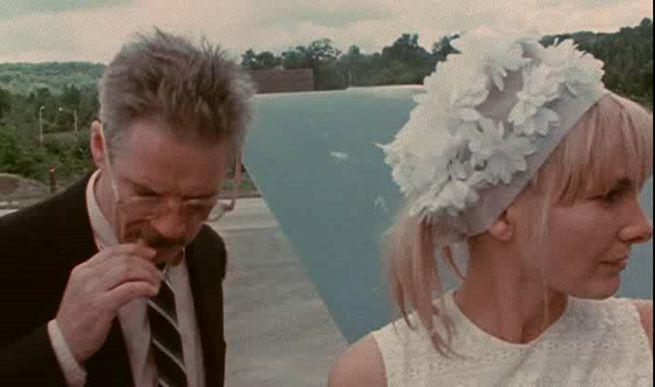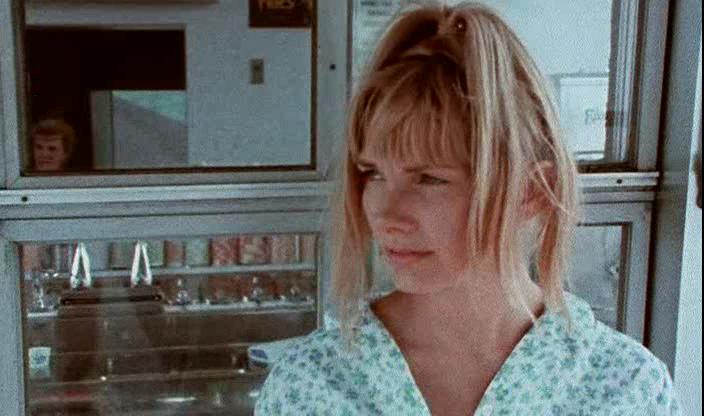IMDB
By Andrea Thompson
It can be easy to lose patience with the title character and protagonist in the 1970 film “Wanda.” From the very first time we see Wanda (who's played by writer-director Barbara Loden), she's a figure of passivity, barely able to get off her sister's couch. This may be one of the great, underrated feminist films, but what frustrates so many about it is Wanda not only begins passive, she remains passive. She comes to no great awakening or revelation, and the fact that she's alive and free by the film's end is a matter of luck.
The first twenty minutes is more than enough to establish her helplessness. Wanda shows up to her divorce hearing late and relinquishes custody and all rights to her ex-husband. She tries and fails to get a job in a sewing factory, has a one-night stand with a man, then chases after him when he tries to leave in the morning. She manages to get in his car before he drives off, only for him to abandon her at an ice cream stand. Things only get worse from there, as Wanda gets robbed after she falls asleep in a movie theater and meets Norman Dennis (Michael Higgins) in a bar. She thinks he's the bartender, but he's actually robbing the place.
IMDB
Wanda leaves with Norman, and he begins abusing her almost immediately. He hits her, and is openly contemptuous of her. He also sexualizes her, insisting she change the way she wears her hair, and dress in the clothes he chooses for her, even yelling, “No slacks!” as he tosses the offensive garments out of the car window. Yet Wanda meekly accepts her fate, referring to Norman as Mr. Dennis, and even stays with him after she discovers his criminal activities. It's hard not to believe at least some of this abusive, controlling relationship wasn't inspired by Loden's real-life husband, the filmmaker Elia Kazan.
If this film is hard to watch now, it also was for many critics at the time. Pauline Kael referred to Wanda as “an attractive girl, but such a sad, ignorant slut that's there's nowhere for her and the picture to go but down.” With all due respect to Kael, she's mistaken. In Loden's hands, Wanda is not merely a blank slate, but a woman with an inner life who yearns to escape from her bleak circumstances but lacks the tools to do so. “I'm just no good,” she laughs to Norman. “No good.”
Loden was an actress who was born into similarly hardscrabble circumstances as Wanda, but managed to leave them at age 16 for New York, quickly making her name in the kind of glamorous pictures she mostly despised. “Wanda” is a kind of meditation on the life Loden could have had if things had gone just slightly differently. The crimes in the film, especially the bank robbery, are also stripped of the fashionable romanticism that defined “Bonnie and Clyde” just a few years earlier in 1967. No one was going to be hunting for Barbara Loden's wardrobe the way many did for Faye Dunaway's Bonnie.
IMDB
“Wanda” may have been rediscovered and praised far more lavishly in recent years than upon its release, but Barbara Loden would only direct two more shorts in 1975 before she died of cancer in 1980 at the age of 48. Today the film has been cited as an inspiration to artists such as Isabelle Huppert and John Waters. Loden may have been completely unsure of her own identity for much of her life, but her film “Wanda” lives on as her very personal declaration of independence.




